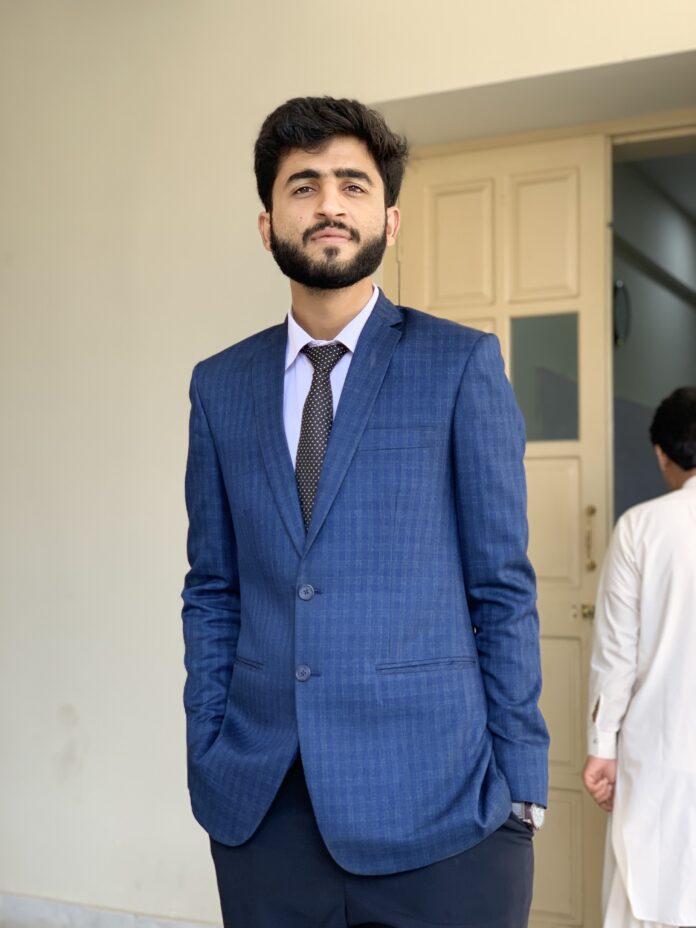Zakaria Khan
A question arises in our minds about who we are…? And what are our thoughts? Being a Pakistani, there are two ways to answer these questions: the first is before the 9/11 incident, and the second is after the 9/11 incident or the war against terror.
Before the 9/11 incident, we all had a mind and a belief in one nation, and that was Pakistan. We all have worked hard just to put Pakistan’s flag above all. We fought for the same goal, having the same friends and enemies, and living as brothers with each other. But after the 9/11 incident, Pakistan’s society scattered for different reasons. Baloch and Pakhtoon were very costly damaged in the war against terror, like approximately every day in Peshawar, Waziristan, and Quetta, a blast had been done, and also the issue of missing persons, which put them annoyed and made them allow to voice their opposition to the state for a peaceful environment in their areas. Due to these, the Baloch and Pakhtoon always want to get citizen rights, which are mentioned in the 1973 Constitution of Pakistan, but they are getting their legal rights. For this issue, the Pakhtoon developed a movement, the Pakhtoon Tahafuz Movement (PTM).
Problem/dispute of Southern Punjab (area covered by Saraiki, i.e., Multan, Dera Ghazi Khan) and Central Punjab (area covered by Pure Punjabi, i.e., Lahore, Faisalabad, Sargodha, etc.) over the issue of water On the same issue (the water issue of the Indus River), the Sindhi people also have a problem with the state for not getting their proper water. Meaning to say that, today’s Pakistan’s society (especially those aged 18 to 30 and enrolled in educational institutions) is scattered because of these different issues and disputes on the name of ethnicity and racism.
The actual question is: how can these different issues be resolved? And how can these people of different races work together to achieve the same goal…?
To answer this question, we have to take the example of Malaysia, where the society was as scattered as Pakistan, even though it was much worse. So, to solve such disputes, they developed some resolutions in their educational system. Their higher education commission, called the Ministry of Education (MOE), or “Kementerian Pendidikan Malaysia” in Malay, which is responsible for formulating policies and managing the education system, omitted some rules and amended rules to make society better.
The rules that were developed by “Kementerian Pendidikan Malaysia” is that each field (undergraduate) will be ranked according to merit, and merit will follow the ranking of the university nationwide, not according to the desire and priority of the student.
These solve the problems of most scattered Malaysian society and provide an opportunity for students of their different provinces to learn about the behavior and way of life of other races and also to modify the good traits of the people of other provinces of Malaysia.
The government of Pakistan has to develop such policies in the educational system, i.e., the Higher Education Commission (HEC), which organizes and controls all the education systems in Pakistan. They have to allow the students of Pakistan nationwide to enroll themselves in the HEC, and then the centralized HEC will appoint them to different universities all over Pakistan.
Students from different provinces should be allowed to get admission to universities in other provinces on a merit basis, not on the basis of quota seats. This merit should be made by the Higher Education Commission by themselves. Like students of Khyber Pakhtunkhwa, they should be allowed to get admission in different provinces and regions of Pakistan (i.e., Punjab, Kashmir, Balochistan, Sindh, and Gilgit Baltistan), and vice versa for students of other provinces. These all should be done just to know the way of life of other regions and modify their bad habits for the good of that region, especially education, because education actually means to bring some positive change in our lives.
This will not just resolve the dispute between different races and cultures but also have developed the friendly and brotherhood relationship because it is the initial step to make some change in society, which should be through education and mainly through the younger ones who are students (age between 18 and 30 years).
Author is student of College of Law, University of Sargodha. He can be reached at [email protected]



